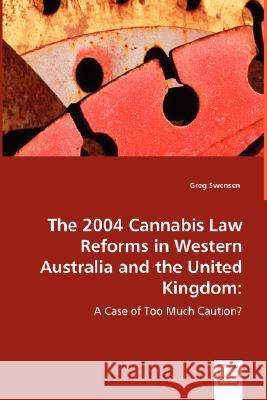The 2004 Cannabis Law Reforms in Western Australia and the United Kingdom » książka
The 2004 Cannabis Law Reforms in Western Australia and the United Kingdom
ISBN-13: 9783639031775 / Angielski / Miękka / 2008 / 380 str.
The past three decades has been a period of intense and sustained debate about the wisdom of police continuing to rigorously apply laws that prohibit the use, possession and cultivation of cannabis. Given a large number of young adults have been exposed to the drug, with few experiencing apparent serious detriment, policy makers have been required to justify the continuation of a system of criminalisation of cannabis. This book examines the cannabis law reforms that occurred in early 2004 in Western Australia (WA) and the United Kingdom (UK) and what lessons can be learnt from these successful reforms as compared to New Zealand, where cannabis law reform did not succeed. In WA new legislation established an all encompassing framework of the circumstances in which police could issue cannabis infringement notices (CINs) involving three offences. Compared to the prescriptive approach in WA, in the UK there was limited legislative reform, with emphasis on expanding police discretion to issue street warnings for cannabis possession. This book is relevant to those who want to understand the processes to maximise the possibility of successful cannabis law reform. The failure of reform in New Zealand highlights the important role that groups and community organisations can perform to garner and sustain public support in circumstances where a government pleads a lack of capacity for parliamentary reform.











